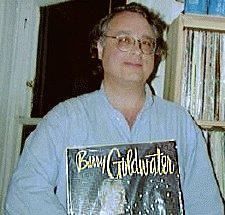Doug Henwood's Blog, page 57
December 7, 2015
Comment on foundations
There were a couple of calls on Twitter for a transcript of what I said on last week’s radio show, following my interview with Benjamin Page. Page had said in the interview that he couldn’t find any foundations interested in funding research by him and his collaborators into the opinions of the top 1%. I’ve added a link to the Leah Gordon interview, which has a link to her book. I’ve expanded a bit on the original in this version.
It’s interesting that the foundations don’t want to support research into the opinions of the upper classes. Page, of course, is too careful a scholar to put it bluntly, but I’m not inhibited by those sorts of constraints. Foundations, almost without exception, exist to put a friendly face on plutocracy, and the last thing that plutocrats want is scrutiny of themselves. They’re interested in melioration but quite opposed to anything too structurally radical. Their role in shaping social science research is profound: recall my interview with Leah Gordon last June about how elite foundations shifted the emphasis in research on race relations away from structural issues towards individual psychology, “from power to prejudice,” as the title of her book put it. Questions interest them far more than answers.
Philanthropy doesn’t get anywhere near the critical attention it deserves, in large part because the kinds of intellectuals who could do that work are dependent on those philanthropies for funding. (I don’t blame the grantees—it’s hard to get by in this world.) I’m not dependent on their generosity, so I’m doing my best to fill in that gap.


December 5, 2015
Fresh audio product
Just added to my radio archive:
December 3, 2015 Benjamin Page, co-author of this paper, on the politics of the top 1% • Alfredo Saad Filho on the political and economic crisis in Brazil


December 1, 2015
My anti-Hillary book is shipping!
Have I mentioned yet that my critique of the presumed frontrunner, My Turn: Hillary Clinton Targets the Presidency, is shipping? Order it now on the OR Books website and it will be in your mailbox in about a week.
My main thought after reading @DougHenwood’s My Turn is that this is the book that all Hillary supporters need to own, because it compiles all the credible criticisms of Hillary in one place, without mixing in a load of right wing dreck. So if something isn’t in Doug’s book, it can probably be safely ignored. If it is in the book, it needs to be taken seriously & some defence prepared. That’s extremely useful. I don’t think many HC supporters will understand this though, as they seem very committed to ignoring the fact that their preferred candidate comes with more historical baggage than any other in generations. Which is odd.
—Daniel Davies on Twitter (translated from five tweets into prose)



Fresh audio product
Just added to my radio archive:
November 26, 2015 Jason Moore, author of Capitalism in the Web of Life, criticizes the idea that humans and nature are separate entities • Jennifer Doyle, author of Campus Sex/Campus Security, talks about security, paranoia, sex, and the large public university


November 19, 2015
Fresh audio product
Just added to my radio archive:
November 19, 2015 Yezid Sayigh on ISIS • Kali Akuno of Cooperation Jackson on efforts to bring sustainability and worker power to the Mississippi economy


November 14, 2015
Fresh audio product
Just added to my radio archive:
November 12, 2015 Raquel Varela updates her report of two weeks ago, as the right-wing Portuguese government is replaced by a center-left one • Mark Oppenheimer, author of this article, on the culture of Yale and its impact on campus racial politics • Max Geller on why Renoir Sucks at Painting
November 5, 2015 Sungur Savran, editor of Red Med, on the Turkish election • Christian Parenti, author of this article, on what the climate movement can learn from the developmental state
October 29, 2015 William “Sandy” Darity on the racial wealth gap (links to papers here) • Raquel Varela on the Portuguese elections


October 23, 2015
Fresh audio product
Just added to my radio archive:
October 22, 2015 Leo Panitch on the Canadian election • Megan Erickson, author of Class War: The Privatization of Childhood, on class and schools


October 16, 2015
Fresh audio product
I’ve been very delinquent about posting radio shows to the archive—sorry. Here’s a batch. There’s a break in the middle for KPFA fundraising (three weeks) and my racing to finish my book on Hillary Clinton (one week).
Speaking of KPFA fundraising, this Behind the News would not exist were it not for that excellent radio station. Please contribute (and mention BtN if you do).
October 15, 2015 Greg Grandin, author of Kissinger’s Shadow, on the ghoulish diplomat’s five-decade rampage
October 8, 2015 David Bloomfield talks edu-policy as Arne Duncan leaves • Elizabeth Bruenig, both journalist and Catholic (and author of this), on papal politics
September 10, 2015 Megan Marcelin, author of this and this, puts the post-Katrina gentrification of New Orleans into historical and theoretical perspective • Josh Bivens, co-author of this, on the gap between productivity and pay
August 27, 2015 DH on the China gyrations • Roger Lancaster on mass incarceration in the U.S.
August 20, 2015 Steve Horn on how Hillary Clinton’s State Department worked to open up the Mexican oil industry to U.S. interests • Isabel Hilton gives the rundown on law, politics, and economics in China


September 23, 2015
POR in the news
I feel guilty about using the tragedy of the Party of the Right threesome gone very wrong to promote my own work, but here are two memoirs of my time in and around the POR.
“I was a teen-age reactionary” (Bad Subjects)
“Partying on the right” (The Nation)

Me in the late 1990s, photographed by Joel Schalit in San Francisco


September 15, 2015
Sanders, budget-buster?
The Wall Street Journal, one of the more respectable organs of the Murdoch press, put out a sensationalized tally of Bernie Sanders’ spending proposals yesterday: an $18 trillion agenda that would “greatly expand government.” Sensation is Murdoch house style, but the Journal is also supposed to be a serious paper.
Here’s how they get to $18 trillion:
Sanders’ spending proposals, next 10 years
billions of dollars
Medicare for all
$15,000
Social Security
1,200
infrastructure
1,000
college affordability
750
fund to allow workers paid family/medical leave
319
protecting private pensions
29
one million youth jobs
6
total
18,304
ex-Medicare
3,304
Sounds like a lot, for sure. And that’s the point of these articles: scare people with big numbers, studiously avoiding context.
A couple of quick contextual points. First, the projections cover ten years, a period when U.S. GDP is expected to total $228 trillion. When you want to make a budget number sound gigantic, always be sure to use the ten-year projections. And always use dollar amounts, because they sound heftier than the more honest measure, percentages of GDP.
Second, over 80% of the total, $15 trillion, comes from a single-payer health care financing system (officially known as H.R. 676, for its bill number in the House of Representatives). It would undeniably increase federal spending, but that increase would be heavily offset by a decline in spending on private insurance. According to the Congressional Budget Office, the federal government is slated to spend almost $15 trillion on health care between 2016 and 2025—but nonfederal spending will amount to nearly twice as much, $28 trillion. (This estimate is based on CBO numbers as well as the semi-official projections published in Health Affairs.) Single-payer would mostly be a substitute for, not an addition to, all that nonfederal spending (and almost certainly one that would be better at cost control). State and local governments, households, and private businesses would see their direct health care spending plummet.
And, while $15 trillion is a gigantic number, it’s 6.6% of projected GDP over the next ten years. Private spending on health care, assuming no major structural changes, is projected to be nearly twice that. With H.R. 676, it would be lots lower.
After universal health care, the next-biggest item is increasing Social Security benefits and bolstering the system’s finances. That’s the prudent and civilized thing to do, and people should stop whining about it. Besides, Sanders’ proposal amounts to 0.5% of GDP over the ten-year period. That is not a large number—it’s a sixth the size of projected spending on the military. The rest of the agenda amounts to just over $2 trillion, or 1% of GDP. Again, that is not a large number. The college affordability component would, like health care, be a substitute for private spending.
So the price tag for Sanders vision of a more civilized society is actually quite small. Dream bigger, Bernie!


Doug Henwood's Blog
- Doug Henwood's profile
- 30 followers



